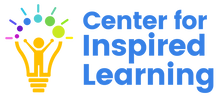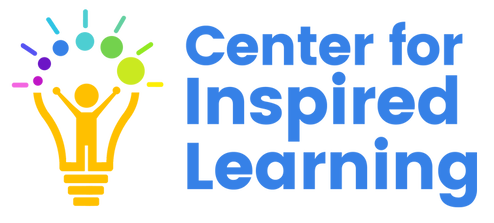The Public Education List of Shame
- So much time and so many school resources are used teaching students to take standardized tests that have little relevance on their future life. (source)
- The material that is taught one day is forgotten the next. (source)
- Important subjects and activities have fallen by the wayside to focus on a narrow curriculum. (source) Math, science, and literacy are all important, but so is history, geography, civics, and economics. (source) Even recess, and important aspect of a child's development (source), is often cut back and sometimes eliminated. (source)
- The quality of education varies greatly between school districts, giving economic and social advantages to some kids while perpetuating poverty and low achievement in others. (source)
- Once a student gets to school, very little time is spent learning. (source)
- Kids are bored! We've grown up thinking that boredom in school is necessary, but it's not! This isn't to say that kids must be constantly stimulated or that they should never be bored, but boredom at school is so prevalent that it's one of the most common things that kids mention about their school experience. Boredom inhibits learning, while being engaged and excited about a subject creates the ideal conditions to learn new skills and retain information. (source)
- Teachers are overworked, underpaid, and not adequately supported. In addition to being educators, teachers are expected to be disciplinarians, daycare workers, bureaucrats, and deal with a host of other problems that are exacerbated by the way schools are organized and run. What other profession expects workers to pay for their own supplies, doesn't give them enough time to do their work, and expects them to work for free before and after work, even at home on weekends and holidays? (source)
- Large numbers of kids are bullied at school creating a hostile environment that can lead to increased rates of depression, suicide, and sexual harassment. (source)
- Schools often cram too many students into classrooms. This is often blamed on budget restraints, but it is also the result of an outdated education model that relies on one person teaching a classroom full of kids with different needs and mastery levels. (source)
- The Teacher Lottery. A Student's relative success during a particular year in school is dependent on them being assinged to one of the more effective teachers and avoiding the sub-par ones. This is especially true in elementary school where students may spend the vast majority of the year with just one teacher.
- Public schools often reinforce the myth that everyone needs a four-year degree. This is based on yet another myth: that vocational and technical jobs are inferior or pay less. They don't! (source) Four-year college degrees are also notoriously expensive, not to mention debt-inducing. College degrees are great for some people but not for everyone, and schools should embrace the many paths to gainful and meaningful employment.
- If public school was invented today, it would reflect and complement the work schedules of parents. (source) It's not hard to organize the school day in a way that parents don't need to scramble for before and after school child care. In fact, parents are left out of the equation as a matter of course.
- Many skills that are required to live a well-adjusted, happy, and successful life are not taught in schools. Students graduate without knowing how to prepare a healthy meal, change a flat tire, do their taxes, unclog a sink, save and invest money, or even tie a basic knot. (source)
- Students themselves feel that what they learn in school is not relevant to their lives. They also report that they feel most engaged with the activities that happen outside of the classroom. (source) Learning cannot be coerced, yet that is the the way we expect children to absorb knowledge and learn new skills. We know that humans learn when they are engaged and passionate about the subject matter. (source) (source) To paraphrase Seth Godin, if we wanted a student to become passionate about American History, why would you hand them a textbook? (source)
"Our 'leaders' on both sides of the aisle continue to claim that our schools are failing and need to be reformed, while in reality our education is obsolete and needs reimagining."
― Tony Wagner
KEY TERMS
Whole Classroom Instructional Model (WCIM) - The century-old structure of sorting children by age, randomly placing them in groups of 20 to 30, then teaching them the SAME material, at the SAME time, at the SAME pace, in the SAME way, by the SAME teacher. Children are seen as passive recipients of information and knowledge and rarely, if ever, take ownership of their learning. Students move between classrooms during the day, move “up” through grade levels over the years, and eventually leave school for the workforce, likely to never step foot again in the place where they spent so much of their childhood. Assessments in this rigid system are done primarily via test-taking. The teacher is at the center of the learning process.
Synonyms:
Learner-Centered Model (LCM) - The impetus for learning comes from a child's innate curiosity. This structure gives students control over the content of lessons and the learning method and promotes autonomy and active learning. The learner is at the center of the learning process. The teacher is seen as a facilitator of the learning process rather than "the sage on the stage."
Synonyms:
Inspired Learner Model (ILM) - A learner-centered education model developed by the Center for Inspired Learning that is designed to work in US public elementary schools using existing school infrastructure, budgets, and staffing. Its components include project and activity-based learning (PABL), peer mentoring, enhanced learning through technology, student choice, parental involvement, community engagement, and other mechanisms to support and encourage children to become lifelong curious learners. Besides traditional elementary school curriculum, ILM may include an emphasis on self-care, financial literacy, media and digital literacy, communication skills, conflict resolution, global citizenship, the arts, and learning at least one foreign language.
Synonyms:
- Standardized Education
- Teacher-Centered Learning
- One-Size-Fits-All Instructional Model
- Factory (Assembly Line) Education Model
- Taylorist Model
- Coercive Schooling
Learner-Centered Model (LCM) - The impetus for learning comes from a child's innate curiosity. This structure gives students control over the content of lessons and the learning method and promotes autonomy and active learning. The learner is at the center of the learning process. The teacher is seen as a facilitator of the learning process rather than "the sage on the stage."
Synonyms:
- Individualized Learning
- Student-Centered Learning
- Adaptive Learning
- Blended Learning
- Personalized Learning
- Competency-Based Education
Inspired Learner Model (ILM) - A learner-centered education model developed by the Center for Inspired Learning that is designed to work in US public elementary schools using existing school infrastructure, budgets, and staffing. Its components include project and activity-based learning (PABL), peer mentoring, enhanced learning through technology, student choice, parental involvement, community engagement, and other mechanisms to support and encourage children to become lifelong curious learners. Besides traditional elementary school curriculum, ILM may include an emphasis on self-care, financial literacy, media and digital literacy, communication skills, conflict resolution, global citizenship, the arts, and learning at least one foreign language.
A 501(c)(3) Nonprofit - EIN 82-4387189






